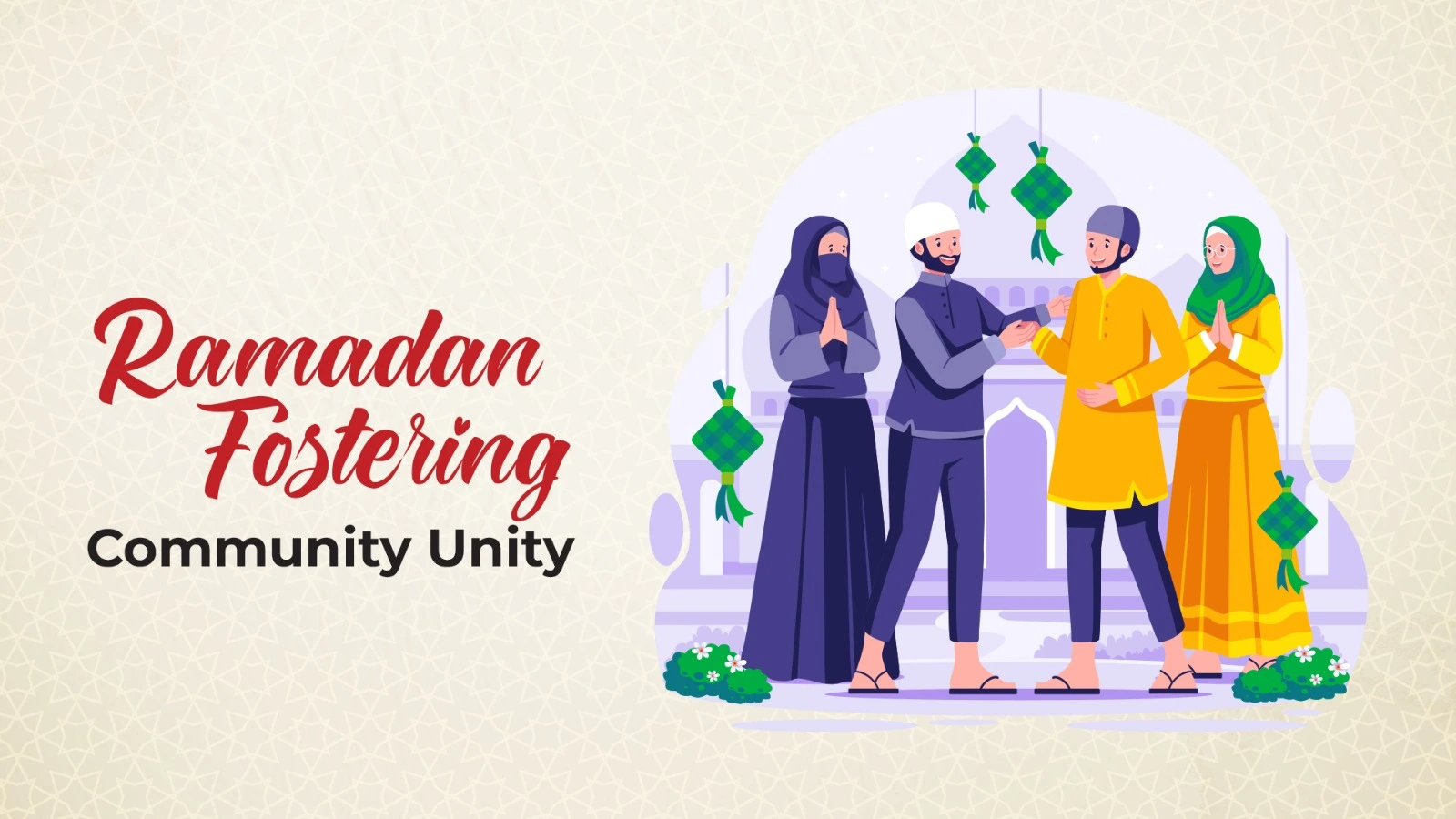Ramadan’s Blessing of Community: Strengthening Bonds and Encouraging Unity Among Muslims

Ramadan is considered holiest month for Muslims all over the world. It is a month of fasting, praying, reflecting on our deeds, forgiveness, and charity. During the Ramadan period, Muslims refrain from eating or drinking from dawn to sunset, as well as from other physical needs. However, Ramadan not only transcends mere avoidance from eating and drinking but also it also aims to enhance unity among members within their community.
RAMADAN ACTS OF CHARITY AND GENEROSITY:
Ramadan encourages charity and generosity within Muslim communities. Muslims are urged to help those in need, whether through financial donations, provide food to the less fortunate, feeding the hungry, or dedicating some hours of their lives to volunteering for a cause that brings hope and justice. This culture of giving nurtures sentiments such as empathy and compassion, where people unite to alleviate the pain of others in society, thus elevating both small-scale and large-scale dimensions of well-being.
STRENGHTING BOND THROUGH PRAYERS:
Prayer holds great importance during Ramadan serving as a way to connect with Allah and seek His blessings. Muslims come together in mosques, for Taraweeh prayers reciting the Qur’an and participating in prayers. These spiritual gatherings not only enhance faith but also foster unity and brotherhood among Muslims standing side by side in solidarity during prayer.
UNITY TROUGH IFATR GATHERINGS:
At the beginning of Ramadan, one of the most loved customs in the Muslim world is the daily iftar, which represents the breaking of the fast at sunset. Coming up with meals as a group can be achieved by joining family members, friends, colleagues, and acquaintances under one roof, resulting in strengthening bonds between kin and kith. In this way, all these gatherings give rise to some sort of collective consciousness since various people from different backgrounds gather together to participate in iftar and prayers of thanks to be said jointly.
FORGIVENESS & RECONCILIATION:
Ramadhan is a period for forgiveness, reflection and reconciliation. Muslims are called upon to pardon any previous grudges and solicit mercy from others. This stress on letting go of the past facilitates reconciliation in relationships and resolutions of conflicts within society. It ensures that people move with an innocent heart so as to facilitate peace building and understanding among the Muslim community members.
SHARED SPIRITUAL JOURNEY:
Ramadan is a time when Muslims are drawn together as they follow a shared religious cause. The process of fasting all day brings an individual to face the same issue of not eating and drinking and restraining from other physical activities, whereby consociating prompts unity. The mutual ordeal provides compassion and insight among neighbours who assist each other in their pledge to worship and control themselves.
RAMADAN WORKS AS A CATALYST FOR SOCIAL JUSTICE:
It is a time for reflection on societal issues and a recommitment to upholding justice, equity, and compassion. The disadvantaged and oppressed call upon Muslims to strive for their rights, voice disapproval towards partiality as well as help establish an equal and compassionate society.
CONCLUSION:
During Ramadan individuals engage in self-reflection, discipline and connecting with their community. By practicing fasting, giving to those in need, forgiving and empathizing with others Muslims. It promotes harmony and togetherness among themselves. This month is dedicated to reinforcing connections, nurturing friendships and offering support on the path towards development and personal betterment. As people worldwide participate in Ramadan they demonstrate the principles of kindness, philanthropy and solidarity that’re central, to this revered time.

